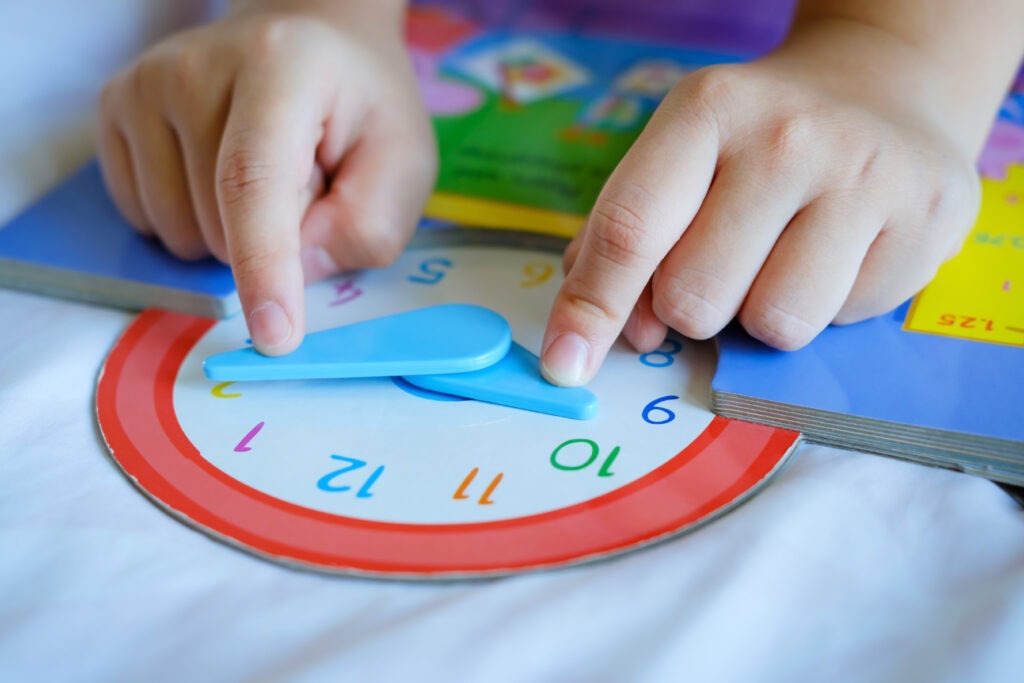
Use … o’clock to say what time it is when the clock shows the exact hour.
It finishes at eight o’clock.
He got up this morning at five o’clock.
It’s one o’clock – time for lunch!
It’s four o’clock in the afternoon.
Midday is used to mean twelve o’clock in the middle of the day.
Midnight is used to mean twelve o’clock in the middle of the night.
To say that it is thirty minutes or less after a particular hour, use … past …
It’s twenty-five past one.
It’s five past six.
It’s quarter past one.
She’s coming here at half past five.
To say that it is a particular number of minutes before a particular hour, use … to …
It’s twenty to one.
It’s ten to eight.
I looked at my watch and it was five to three.
I’m leaving at quarter to one.
To find out the time now or the time that something starts, use What time … ?
What time is it?
What time does it start?
What time shall we meet?
To say the time that something is happening, use at …
It starts at seven o’clock.
The train leaves at seven thirty.
I’ll see you at half past three.
To say that something will happen at or before a particular time, use by …
Can you be there by three o’clock?
I have to leave by quarter to one.
We have to finish this by half past four.
Come back for more blogs on using English in everyday situations: https://blog.collinsdictionary.com/language-learners/learning-english/
All opinions expressed on this blog are those of the individual writers, and do not necessarily reflect the opinions or policies of Collins, or its parent company, HarperCollins.



